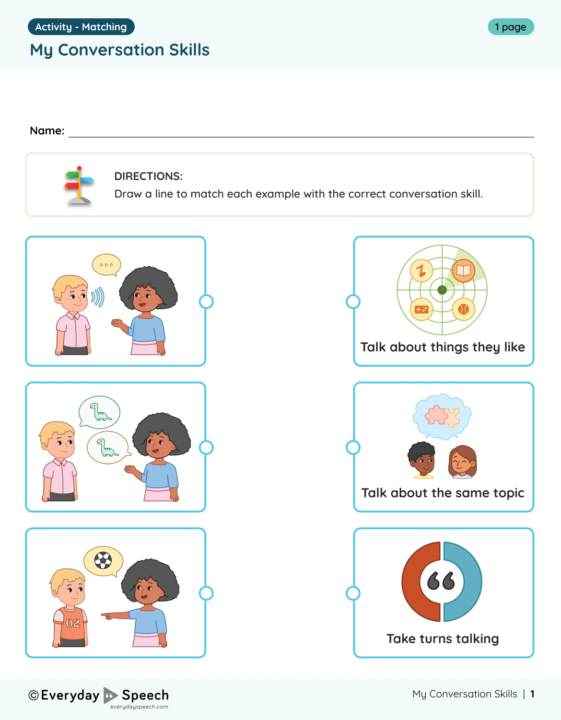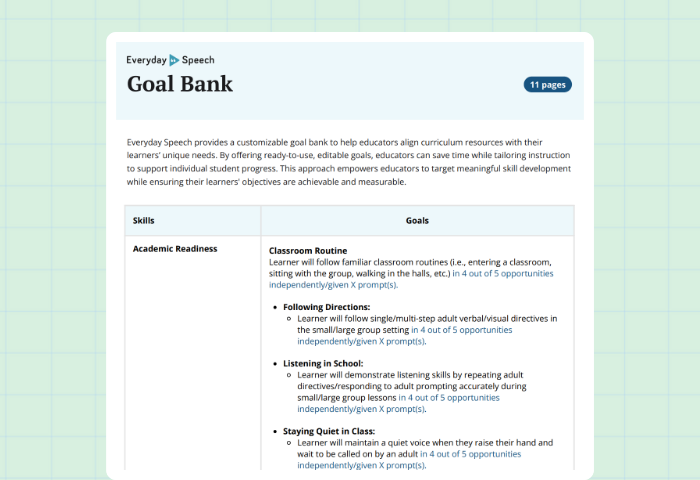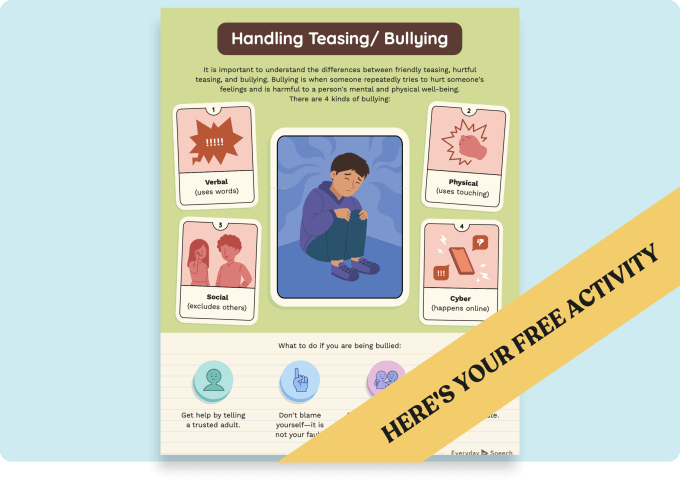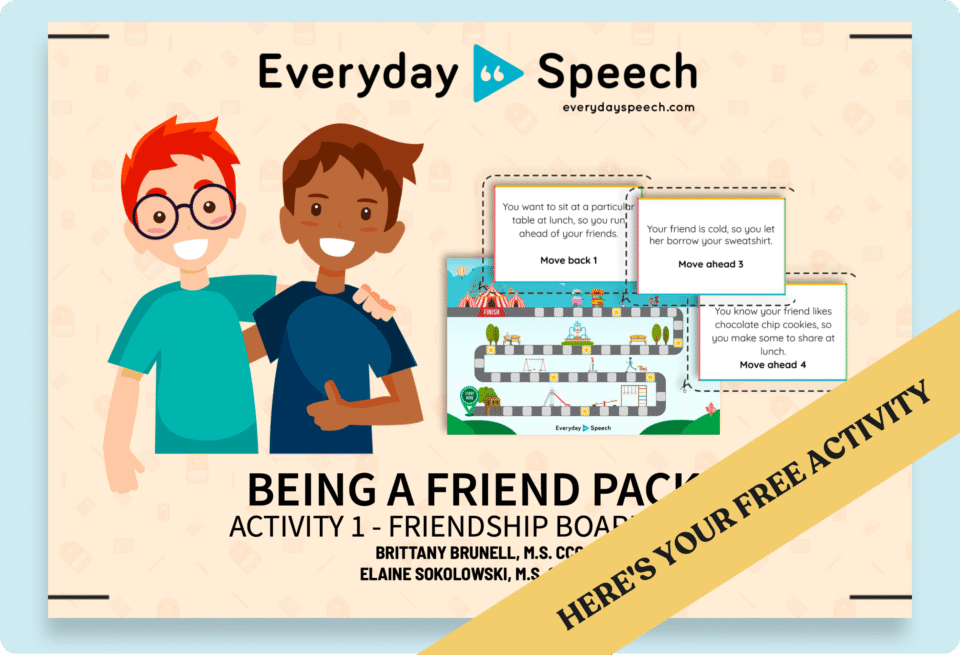Elementary Conversation Skills Lesson: Sharing a Conversation
Get free social skills materials
No-prep lessons on self-regulation, emotional recognition, conversation skills, and more.
Sign up hereIntroductory Overview
As speech-language pathologists (SLPs), we know the importance of effective communication skills in children’s social and academic development. Today, we will focus on teaching basic conversation strategies to elementary students. We will also discuss a straightforward, no-prep lesson plan with activity ideas. If you’ve been looking for a free elementary sharing conversation pdf that’s not just practical, but also fun, this post is for you.
Related resources: See our full list of social skills lessons.
Understanding the Need for Conversation Strategies
Learning conversation strategies is essential for elementary students. It not only improves their verbal expression but also enhances their ability to understand and interpret social cues. Through these skills, children can engage in meaningful, reciprocal interactions, fostering both their social relationships and their learning.
Conversation Strategies Lesson Plan: Breaking It Down
Step 1: Explain the Importance of Conversation
Start by explaining to the students why conversations are important. Use real-life examples that they can relate to, such as having a discussion during playtime, asking a question in class, or telling their parent about their day.
Step 2: Introduce Basic Conversation Strategies
Introduce the basic conversation strategies to the students. These include:
- Taking Turns: Emphasize the concept of speaking and listening, stressing that both are essential in a conversation.
- Staying on Topic: Explain how sticking to the topic makes the conversation more enjoyable and understandable.
- Using Body Language: Discuss the role of non-verbal cues like eye contact, facial expressions, and posture in conversations.
- Asking Questions: Teach students how to ask open-ended questions to show interest and maintain the conversation.
- Listening Actively: Encourage students to show they’re listening through verbal cues like “uh-huh,” “really?” and non-verbal cues like nodding.
Step 3: Role-play Scenarios
Role-play various scenarios where students can apply these strategies. For example, a conversation at the playground, a dialogue with a teacher, or a chat with a friend about a favorite book.
No-Prep Activity Ideas
“Turn-taking Twister”
Create a game where students must follow a conversation ‘map’, taking turns to ask questions and respond, and mark off each step they complete.
“Topic Detective”
In this game, students must stay on topic for a series of questions. If they deviate, they lose a ‘detective badge.’
“Emotion Charades”
A fun game to reinforce the concept of non-verbal cues. Students must guess the emotion from their peer’s facial expression or body language.
“Question Relay”
Students are in teams, with each team given a conversation topic. They take turns asking questions related to the topic, with points awarded for creativity and relevance.
These activities will create a fun and interactive learning experience for the students, reinforcing the importance of effective conversation skills.
Free Everyday Speech Worksheet
Utilize this free elementary sharing conversation worksheet for a fun individual or small group activity! Feel free to print, cut out, and hang the visuals up as a reference for future lessons as well!

Wrapping Up and Reinforcement
Remember, practicing these skills should not end when the school day does. Encourage students to utilize these strategies at home, with friends, and in their communities. You can provide a free elementary sharing conversation pdf for parents, outlining the strategies their children are learning and offering ways to practice at home.
Sample Video
Students learn best from watching real students their own age model skills. Try out this sample video-modeling lesson below. We offer our entire Social-Emotional Learning platform free for 30 days here!




